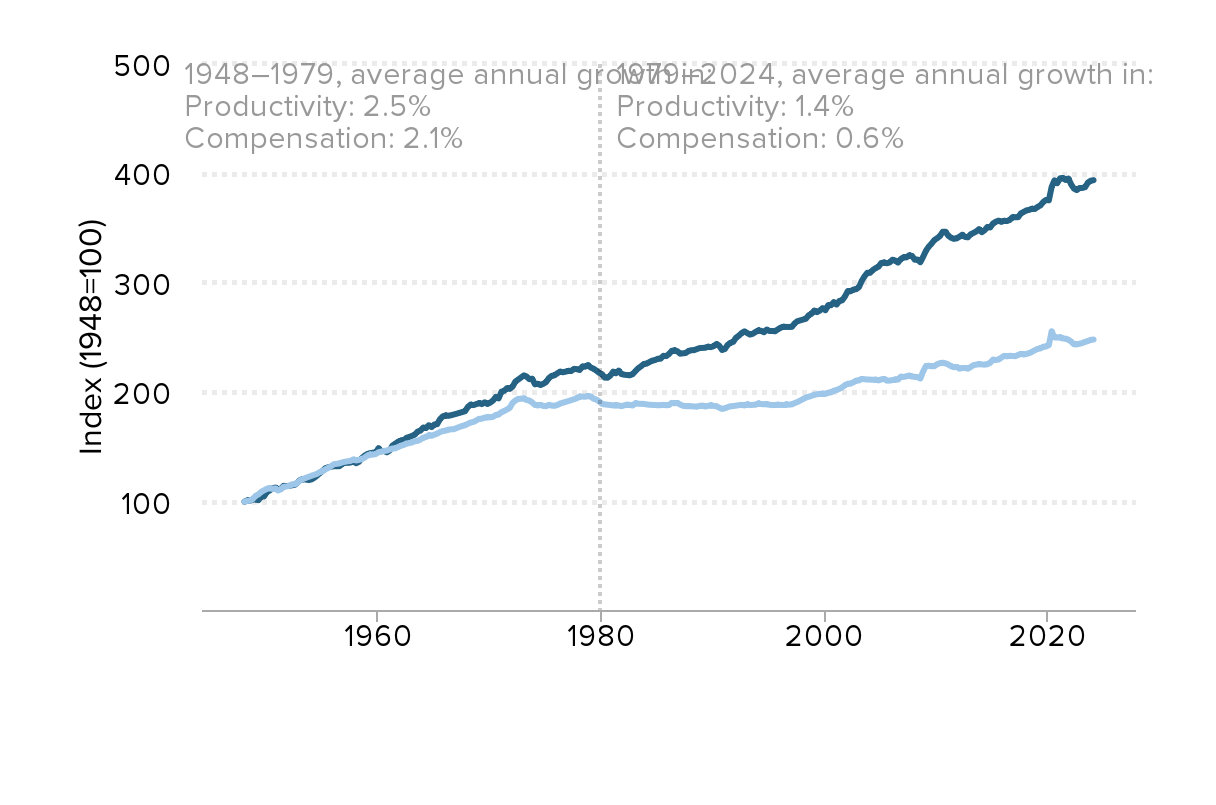Deny, Defend, Depose: We are already living in a Cyberpunk Hell (and how we can fix it)
AI and Blockchain give us the opportunity to radically renegotiate all relationships with power - business, government, and money. We can rewrite the social contract from the ground up - literally!
Luigi Mangione, a shredded Italian hunk, has apparently taken justice into his own hands, and allegedly executed a CEO in broad daylight. It’s like something out of a slop thriller, one or two rungs below The DaVinci Code in terms of narrative sophistication.
Etched on the bullet casings, as a seeming mythic incantation, some sort of magical spell, were the words DENY, DEFEND, and DEPOSE. This mantra illustrates the insurance industry’s strategy in three devastating words.
In the insurance industry, the strategy often referred to as “deny, defend, depose” describes a systematic approach some companies are accused of using to minimize payouts on claims. Initially, insurers may deny legitimate claims outright or delay resolution to discourage policyholders from pursuing further action. If the claimant persists, the company might adopt an aggressive legal defense, often deploying vast resources to outlast or intimidate the individual. The “depose” phase involves extensive legal tactics, including deposing claimants and witnesses to uncover inconsistencies, challenge credibility, or escalate costs for the claimant, potentially pressuring them to settle for less or abandon the claim altogether. Critics argue that this strategy prioritizes profit over policyholder protection, fostering a contentious relationship between insurers and their clients.
This is not unlike the Microsoft strategy that got Bill Gates into hot water in the 90’s, and for which many still believe he is evil incarnate. Microsoft used the similar mantra “Embrace, extend, and extinguish.” This surfaced during one of the many antitrust lawsuits against Microsoft, one of the most famous of which was brought by Red Hat.
Here’s how that strategy works:
“Embrace, extend, extinguish” describes a competitive strategy in which a dominant company adopts a rival’s technology or standard to gain acceptance and trust among users, then modifies or extends it in ways that make it incompatible with the original. These extensions, often tied to the company’s proprietary ecosystem, create dependencies that lock users and developers into their platform. Over time, as the extended version becomes the de facto standard, the original rival technology loses relevance, market share, or compatibility, effectively being pushed out of the market. This approach has been criticized for stifling competition and innovation by leveraging dominance to undermine rivals rather than competing on merit.
Now, how do I tie this back to cyberpunk as a genre?
It’s important to understand the genesis of cyberpunk. In the 1970’s, with the rise of technology companies, combined with the rise of neoliberalism, a few people saw the writing on the wall. New technology would reshape society, and a new socioeconomic/sociopolitical theory (neoliberalism) would reshape everything else.
Books like Neuromancer were followed by movies like Blade Runner. The primary thought experiment of the cyberpunk genre is: what happens if technology and capitalism run away from us?
Here are some of the central referents of the cyberpunk genre:
High Tech, Low Life
The “punk” in cyberpunk stems from the examination of the havenots in this new world, the losers. As multinational conglomerates like Sony, Samsung, and IBM take over, making trillions, they create increasingly sophisticated gadgets and distractions. New internet and gaming consoles, VR, and all that fun stuff.

The winners in the cyberpunk genre are obscenely wealth tech billionaires and trillionaires. Not so different from reality! The cyberpunk genre predicted the rise of Bill Gates and Elon Musk. This is not quite so remarkable when you study economics and history—there is always capital accumulation in the world. It’s just that the nature of capital changes over time. Originally, capitalism was more focused on land, hence empires and feudalism. Then, with industrialization, factories became the most valuable capital asset. Now, technology is the most valuable capital asset.
You look lonely. I can fix that.
Who wouldn’t want a personal Ana de Armas who is madly in love with you?

Nothing is Sacred, Everything is For Sale
One of the central tenets of neoliberalism is this:
A key tenet of neoliberalism is the belief that anything outside the market should be brought into the market, rooted in the idea that markets are the most efficient and rational way to allocate resources and maximize individual freedom. This principle holds that goods, services, and even intangible aspects of human life—such as healthcare, education, and personal relationships—are best managed when subjected to market forces, which are seen as inherently superior to alternatives like government provision or communal systems. While proponents argue this expands consumer choice and fosters innovation, the consequence is that nearly everything, including aspects of human dignity, becomes commodified and subject to buying and selling. This logic underpins phenomena like the rise of pornography and platforms such as OnlyFans, where intimate aspects of life are monetized, not because they inherently belong in the market but because market primacy dictates that if a demand exists, the market must supply it. This commodification erodes boundaries between public and private, and critics argue it prioritizes profit over social values, reducing human relationships and identities to transactional exchanges. Under neoliberalism, only the market is sacrosanct.
This is quintessentially exemplified by the raw id we see in cyberpunk genres. Throughout the Cyberpunk 2077 game, we see ads for everything. Some ads are for cocaine, others use intersex women (the “Mix it up!” add featuring a woman with a rather large erection) and the “Milfguard” ads (which is a play on The Witcher’s “Nilfguard” kingdom, another CDPR game).

After all, sex sells! If the market is the only thing sacred, then whatever the market wants, the market shall render!
One of the consequences of this policy is what I call earned personhood. In other words “you are only as free as your wallet will take you. You want more freedom? Make more money!”
Want the fancy house, the big yacht, and a lot of hot sex? Well, you know the drill. Get that money. This led directly to the 1980’s mantra on Wall Street “Greed is good!”, which was sort of a prelude to Mark Zuckerberg’s “move fast and break things.”
Corporate Lives Matter (more than yours)
Neoliberalism also explicitly empowers corporations more than humans (which is euphemized as “labor”). So when we say “capitalism” today what we really mean is the valorization of capital above all other interests. And when we say “labor” we’re really just saying “actual human beings.”
The story of neoliberalism’s prioritization of corporate economic agency over the rights and stability of workers begins in the late 20th century, when policymakers embraced market efficiency as the guiding principle of governance. This ideological shift gained momentum in the United States under Ronald Reagan and in the United Kingdom under Margaret Thatcher, where sweeping economic reforms dismantled protections for organized labor and strengthened the hand of capital. One pivotal moment came in 1981, when Reagan fired over 11,000 air traffic controllers who had gone on strike for better working conditions. By breaking the Professional Air Traffic Controllers Organization (PATCO), Reagan sent a clear signal that corporate and state interests would supersede those of labor, emboldening employers to resist unions and suppress collective bargaining efforts. Thatcher mirrored this approach in the UK with her crackdown on the miners’ strikes, framing union demands as obstacles to economic progress while deregulating industries to empower corporate actors.

These actions reflected a broader neoliberal philosophy that treated workers less as stakeholders in the economy and more as flexible units of labor to be optimized. Central to this was the belief in a highly mobile workforce, where employees were encouraged—or compelled—to constantly seek better opportunities rather than rely on stable, long-term relationships with employers. Corporate loyalty to workers, once an assumed part of the social contract, was cast aside in favor of “market efficiency,” which dictated that businesses prioritize cost-cutting, automation, and outsourcing to stay competitive. Alan Greenspan, then chair of the Federal Reserve, highlighted the role of worker insecurity in this system when he praised the “traumatized worker” for keeping inflation low, noting that the fear of unemployment discouraged wage demands and labor militancy. This deliberate creation of precarity was not a byproduct but a feature of the neoliberal order, as it reinforced the primacy of capital by ensuring labor remained compliant and cheap.
The consequences of this shift were profound. Income inequality surged as corporate profits soared, while wages stagnated and job security eroded for millions of workers. Entire industries were hollowed out by globalization, leaving once-thriving communities in economic ruin. Yet the narrative of individual responsibility persisted, with workers urged to “upskill” or relocate to keep pace with the demands of the market. This emphasis on flexibility masked the reality that power and wealth were increasingly concentrated in the hands of corporations and their shareholders, while workers bore the brunt of risk and instability. By privileging the freedom of capital over the rights of labor, neoliberalism not only reshaped economies but fundamentally altered the relationship between people, work, and the state.
The Attractor State is Locked In
The carrot of neoliberalism and capitalism is very compelling. From a geopolitical perspective, any decision that harms the economy is tantamount to suicide. The strength of a nations economy is directly proportional to their clout on the world stage. Sorry kiddo, you have to suffer so that your nation has a bigger stick to swing.
So how do we change this?
Here’s where things get interesting. Many people say “technology isn’t the solution! In fact, technology is the problem!” After all, it was the Internet that allowed Mark Zuckerberg to build Facebook, Elon Musk to buy Twitter, and Jeff Bezos to dominate consumer markets with Amazon.
But what if technology is also part of the solution? Two technologies in particular: AI and blockchain.
Post-Labor Economics
First, we need to destroy the demand for human labor. This is the fundamental nature of automation, and from an economic perspective, that’s all AI is. Artificial intelligence and robotics are just automation technologies. They might be the final automation technologies.
Right now, many of society’s problems come from the tension between capital and labor. The government merely serves as arbiter between business and workers, and neoliberalism explicitly favors business. No wonder government approval is hovering near all time lows, and trust in institutions is abyssal.

So, how do repair this relationship? It’s time for a divorce. Not between us and the government, but between us and labor. No one can get along with respect to labor, anyways. Workers hate their jobs, and employers have nothing but disdain for their workers.
It is time to end this institutionalized codependence.
Let businesses replace humans with robots and AI so they can sell goods and services to the masses without the “dead weight” of “whiny humans.” I wrote more about that here:
A Post-Labor Economics Manifesto
Neoliberalism has quite a few policies and heuristics that have been in play for more than 40 years. We need a new manifesto, a new framework. Here's my current proposal. Here's my (current) proposal!
I also wrote a bit more about it all here:
What do I mean when I say "Post-Labor Economics" anyways?
When machines are better, faster, cheaper, and safer: This creates an "economic agency paradox"—a death spiral of deflation and collapsed consumer demand. The solution may be tokenomics.
The TLDR for both of these articles is as follows:
The fundamental economic transformation we’re facing is the inevitable replacement of human labor by artificial intelligence and robotics, creating what I call the “Economic Agency Paradox”—a critical moment where machines become exponentially more efficient at every task, rendering human labor economically irrational. As automation becomes mathematically superior across cognitive and physical domains, we face a potential economic death spiral where increased productivity paradoxically leads to collapsed consumer demand, since traditional wage-labor mechanisms will no longer generate purchasing power for the majority of the population.
My proposed solution, Post-Labor Economics, reimagines economic participation by transforming every individual from a laborer into an investor through universal asset tokenization and AI-enhanced market agency. Instead of trying to preserve human jobs in an economy that no longer needs them, we create a new economic paradigm where people maintain economic relevance by directing resources, making investment decisions, and capturing value through decentralized, transparent systems that democratize access to economic opportunities previously reserved for elite investors. This approach doesn’t just patch capitalism but fundamentally restructures economic engagement for an automated age.
The key principles of this new economic framework include radical transparency, decentralization of power, local ownership, minimizing intermediaries, and prioritizing automation as a path to human liberation rather than economic threat. By ensuring that every individual has AI-assisted investment capabilities, standardized digital tokens representing various economic assets, and legal frameworks that protect democratic market access, we can create an economic system that increases total value generation while distributing benefits more equitably. Post-Labor Economics isn’t about fighting technological inevitability, but embracing automation's potential to expand human potential beyond the constraints of traditional labor-based economic models.
Artificial intelligence will make most of this automatic and inevitable.
Radical Transparency with Blockchain
The second piece of this technological puzzle is blockchain. This does include cryptocurrency, but more importantly, decentralized, immutable, and uncensorable records.
History has demonstrated, over and over again, that transparency results in accountability. Accountability always dramatically improves democracy and quality of life for humans. Blockchain technology offers this promise.
Democracy dies in darkness. Blockchain is an unquenchable flame.
The opacity of authoritarian regimes like Russia and China represents the most extreme form of economic inefficiency. In these systems, institutional corruption isn’t a bug—it’s a feature. The Chinese Communist Party’s economic model depends entirely on information control, where state-owned enterprises can manipulate markets, hide real economic performance, and extract value through non-transparent mechanisms. Russia’s kleptocratic system operates similarly, with political connections determining economic outcomes rather than market principles.
Blockchain technology directly attacks this fundamental weakness by creating immutable, distributed records that cannot be centrally manipulated. Consider property rights as a concrete example: in Russia, land ownership can be arbitrarily changed through bureaucratic fiat or political connections. A blockchain-based property registry removes this discretionary power, making every transfer, every ownership change, a mathematically verifiable public record. The economic imperative is clear—you cannot extract rent through opacity when every transaction is transparently recorded and cannot be altered.
The geopolitical implications extend beyond mere technological efficiency. Liberal democracies have always maintained a competitive advantage through institutional transparency, but blockchain transforms this from a principle to a mathematical certainty. When every government contract, political donation, and administrative decision becomes an uncensorable, distributed record, the ability of any regime to maintain systemic opacity collapses. This isn’t just about technological innovation—it’s about restructuring the fundamental power dynamics that enable institutional corruption, creating a new paradigm of economic accountability that makes plausible deniability mathematically impossible.
Decentralization: This is critical because it intrinsically challenges the notion that central authorities (i.e. “the Feds”) can be the only arbiters of facts, truth, and data. Right now, in the complex information environment today, no one can be the arbiter of facts and information, but the government through its monopoly on force, can literally say “this is the way things are, deal with it.” Blockchain’s decentralization puts power back in the hands of the people, which will inevitably reshape political discourse and accountability. (This, by the way, is why banks and governments are terrified of blockchain)
Immutability: Another word for “immutable” is “uncensorable.” Throughout all of history, information control is a form of violence. We see this writ large with China’s “Great Firewall” and Russian state propaganda. We even see this today in America, where the “official narrative” is actively curated and inconvenient facts are suppressed. Consider the fact that the vast majority of people believe COVID came from a lab leak, but the official story remains “it was a zoonotic disease.” Knowledge is powerful, and a bulletproof source of real information is a weapon in the hands the of the people. Blockchain’s intrinsic nature makes it impossible to shut down or erase.
By examining the nations today that exemplify authoritarianism, and those who demonstrate freedom and liberty, we clearly see that information warfare is a central pillar. China, North Korea, and Russia all demonstrate the power of information control and central authority. Epistemic violence at the state level is one of the chief levers of power, one that corporations increasingly want to exploit. Control of data and information allows for control over narratives. But moreover, the apparatus of state, allocation of power, and visibility of decisions at a million different points, all hinges upon transparency and accountability if we want a more free society.
Conclusion: The One-Two Punch
The twin forces of AI and blockchain will ultimately allow us to reshape not just the economic landscape, but the fabric of society itself. The era of “alternative facts” will come to and end, as will the era of wage slavery.
Here’s the critical things that artificial intelligence does for us:
Automation expansion: AI dramatically expands the “frontier of automation” which can fundamentally dislocate the demand for human labor. This fundamentally breaks the wage-labor social contract and allows us to negotiate a new relationship with capital, business, and government.
Information processing: AI can process and consolidate huge amounts of information. Knowledge is power. This includes reading and reacting to bills, surfacing important insights, and tracking a vastly complex information landscape.
And here’s core actions of blockchain:
Radical transparency: Through immutability and decentralization, we can create an uncensorable information ecosystem, which fundamentally puts the power back in the hands of the people. This arms us against both government and business interests.
Consensus mechanisms: Truth takes on a new meaning when the arbiters of information are all of us, algorithmically verifiable, and immune to tampering. This goes beyond simply knowing things, but offers us entirely new ways to make decisions, allocate resources, and get our needs met.
Here’s a non-exhaustive list of things I’d like to see moved to the blockchain:
All property records and stock transactions, specifically for politicians and business leaders.
All political activity, including congressional votes, donations, gifts, appropriations, and so on. This should include political decisions.
Central bank transactions, tax allocations, and the like. We need to all see where our money is going at all times.
Corporate influence and accountability systems, including political influence, emissions, donations, and other activities that the public has a right to know about. That could include scientific funding and manipulation.
Follow the money.







I'm not ideologically opposed to using blockchain to solve problems, but isn't real-world enforcement a major problem with tokenization? Even if we move official policy to a blockchain, what stops people from doing back-door dealings?
Also, in the beginning you note that neoliberalism commodifies everything and this is a huge problem - but this is precisely what tokenomics does to an even more radical degree. I could see ways it might play out differently just based on what we make our systems value, but could you expand on how these relate? Is my personhood going to be tokenized?
I'd love to understand better why you think that the transparency of blockchain does away with the evils enabled by secrecy.
It seems to me that it would be easy enough to create a massive volume of transactions that, even if they were totally transparent and easily comprehensible individually or in clumps, could obscure the meaningful transactions from anyone reading the chain.
Add in the idea of complexity via terminology, or even complexity because the subject is legitimately complex, and no amount of transparency is going to help: only an expert would be able to make sense of the blockchain, and only if they had the time, energy, and resources to unpack the volume of it.
AI might be able to reduce the noise and complexity to see meaningful trends in the transaction chains, but somebody with access to more cycle time and more advanced AI models would be able to overwhelm impoverished AI users or less powerful models.